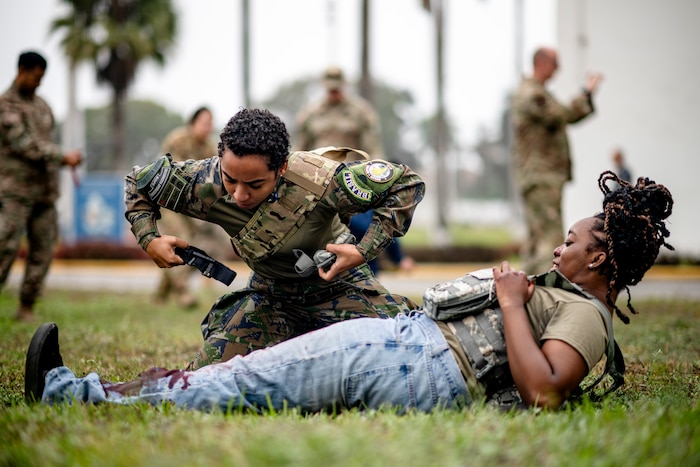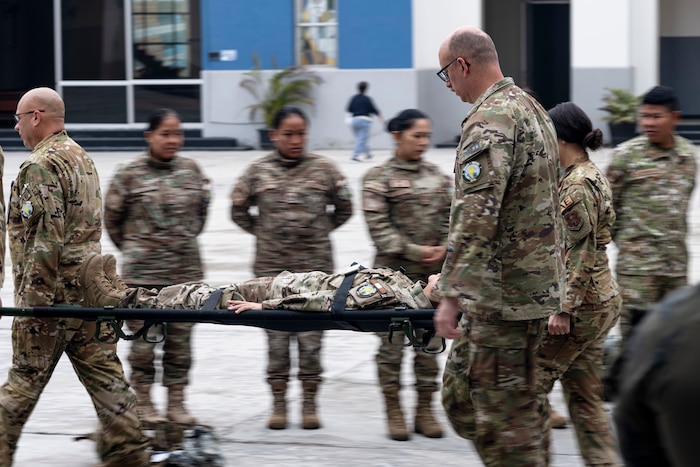Peruvian and Brazilian armed forces participated in a joint Tactical Combat Casualty Care course led by the U.S. Air Force as part of exercise Resolute Sentinel 2024 at Las Palmas Air Base in Lima, June 4.
This collaboration aimed to enhance the medical readiness and interoperability of the participating countries, ensuring they are better prepared to handle combat injuries in various operational scenarios.
Approaching the training holistically, the TCCC course included a series of comprehensive modules, covering battlefield medicine, trauma care and evacuation procedures. Peruvians and Brazilians engaged in hands-on simulations and lectures led by experienced medical personnel assigned to the 167th Aeromedical Evacuation Squadron from McLaughlin Air National Guard Base, West Virginia.
"As West Virginia, we are state partners with Peru," said U.S. Air Force Chief Master Sgt. Matt Lyons, 167th AES senior enlisted leader. "It's a good working relationship. They have been in West Virginia numerous times and visited us. This is our second year in a row where we've visited them and been involved in their exercises."
The Peruvian partners specifically requested the training seeking qualifications in TCCC. Lyons and the rest of his team made sure to cover all components of the course throughout the week with the help of a U.S. Army interpreter to facilitate conversation.
Peruvian Air Force Tecnico de Tercera (technical sergeant third class) Carlos Rufino, aeromedical evacuation technical nurse, said this training shows that it doesn't matter what country one is from, but the importance of working together to save a life.
Widely recognized for its effectiveness in reducing preventable combat deaths, TCCC focuses on providing life-saving care at the point of injury. It includes techniques for controlling severe bleeding, managing airways and treating other critical injuries on the battlefield.
"It's important to train on these things so the patient can get home to their family," Rufino said. "Nothing is more important than family."
Not only do these exercises maintain the long-standing history of cooperation between nations, but they exemplify their ongoing efforts to bolster regional security and operational readiness. The Peruvian, Brazilian and U.S. partners plan to continue these joint exercises in the future, with the goal of further improving their medical response capabilities.
"This is the biggest contingency of people that we've ever sent down here," said U.S. Air Force Lt. Col. Forrest Moodispaw, 167th AES flight nurse. "This has been eye opening to see more capabilities than we usually do - we're building up some good relationships, for sure."
The TCCC training at Las Palmas Air Base underscores the commitment of the U.S. and partner forces working together in addressing common challenges and enhancing their joint operational effectiveness.









